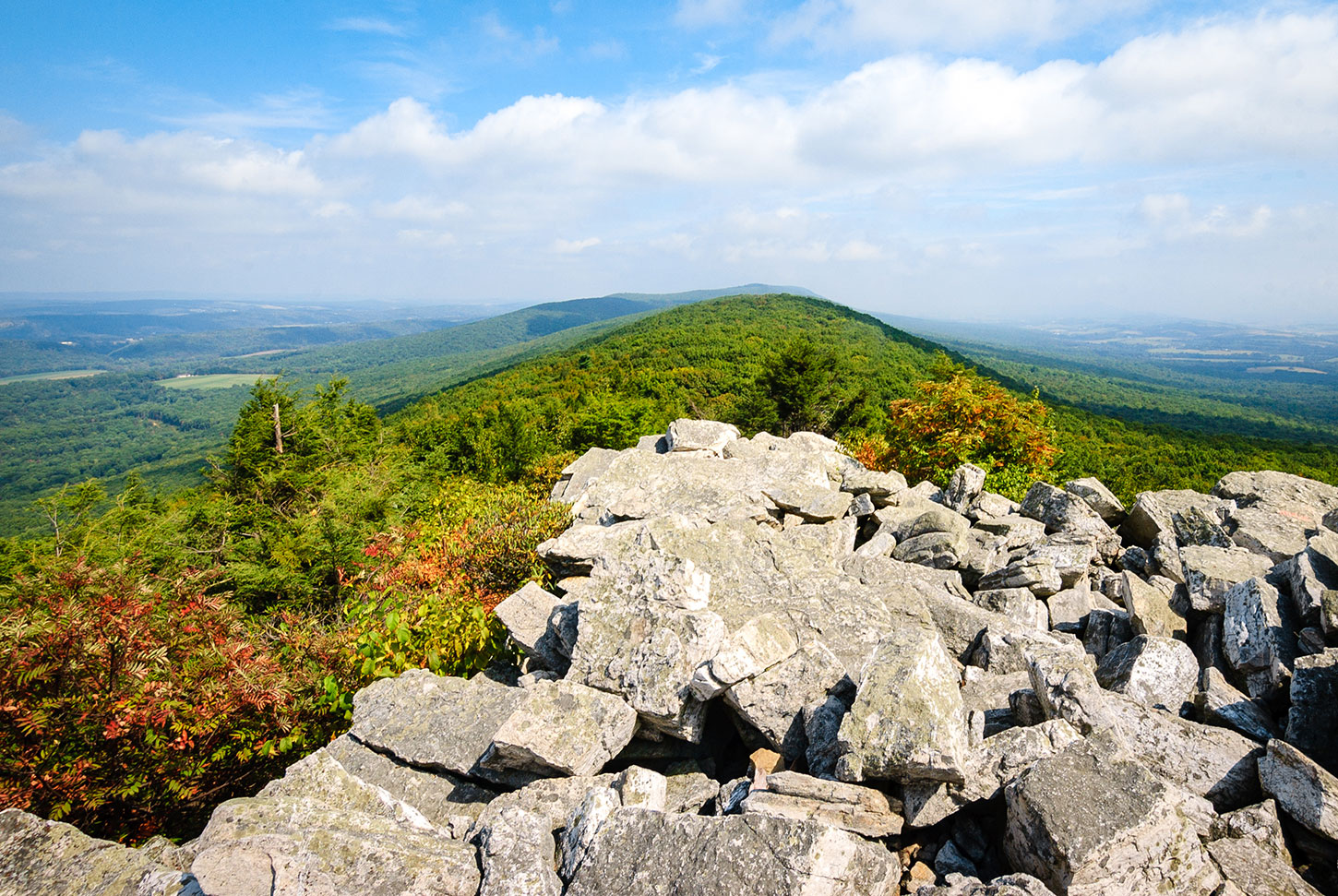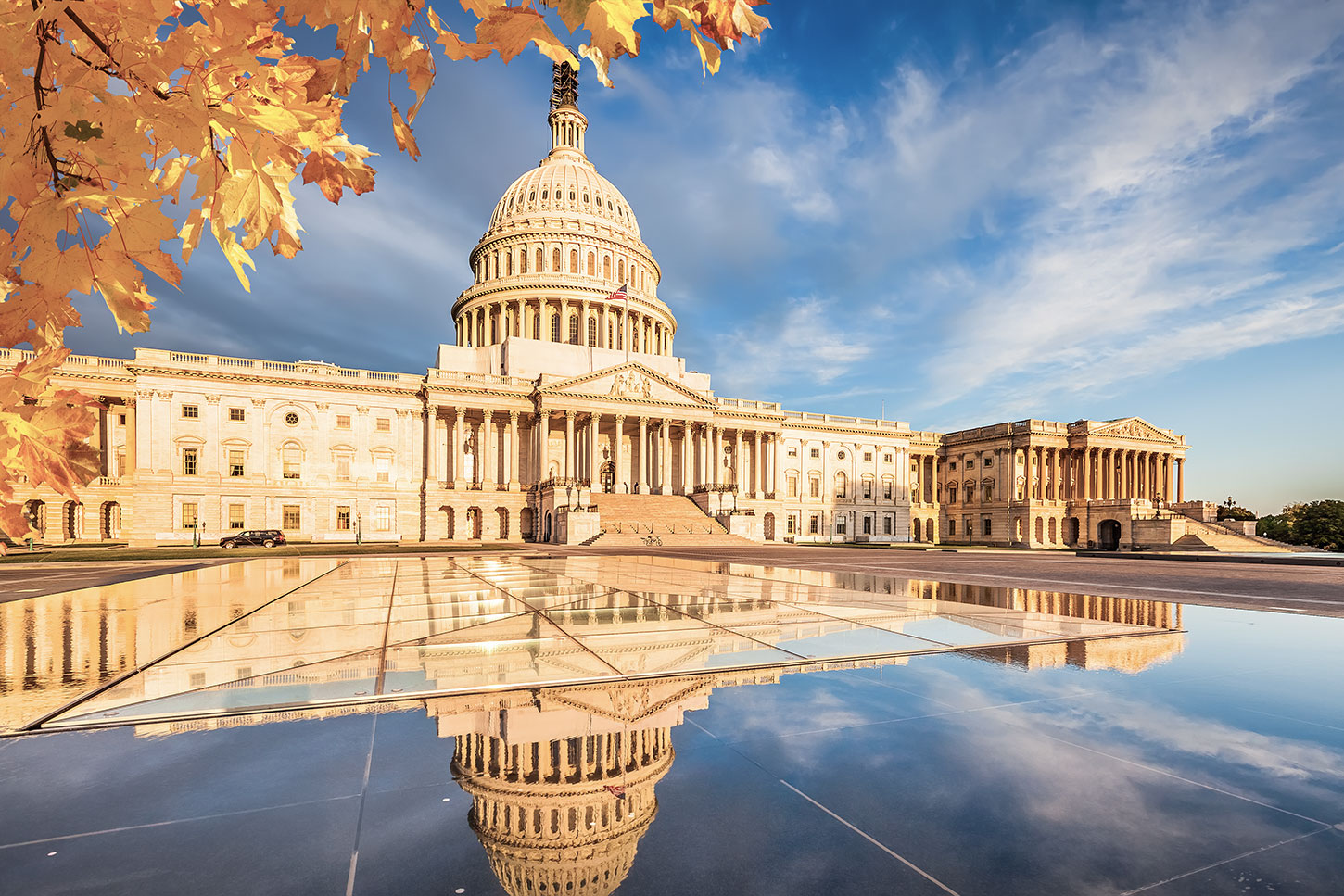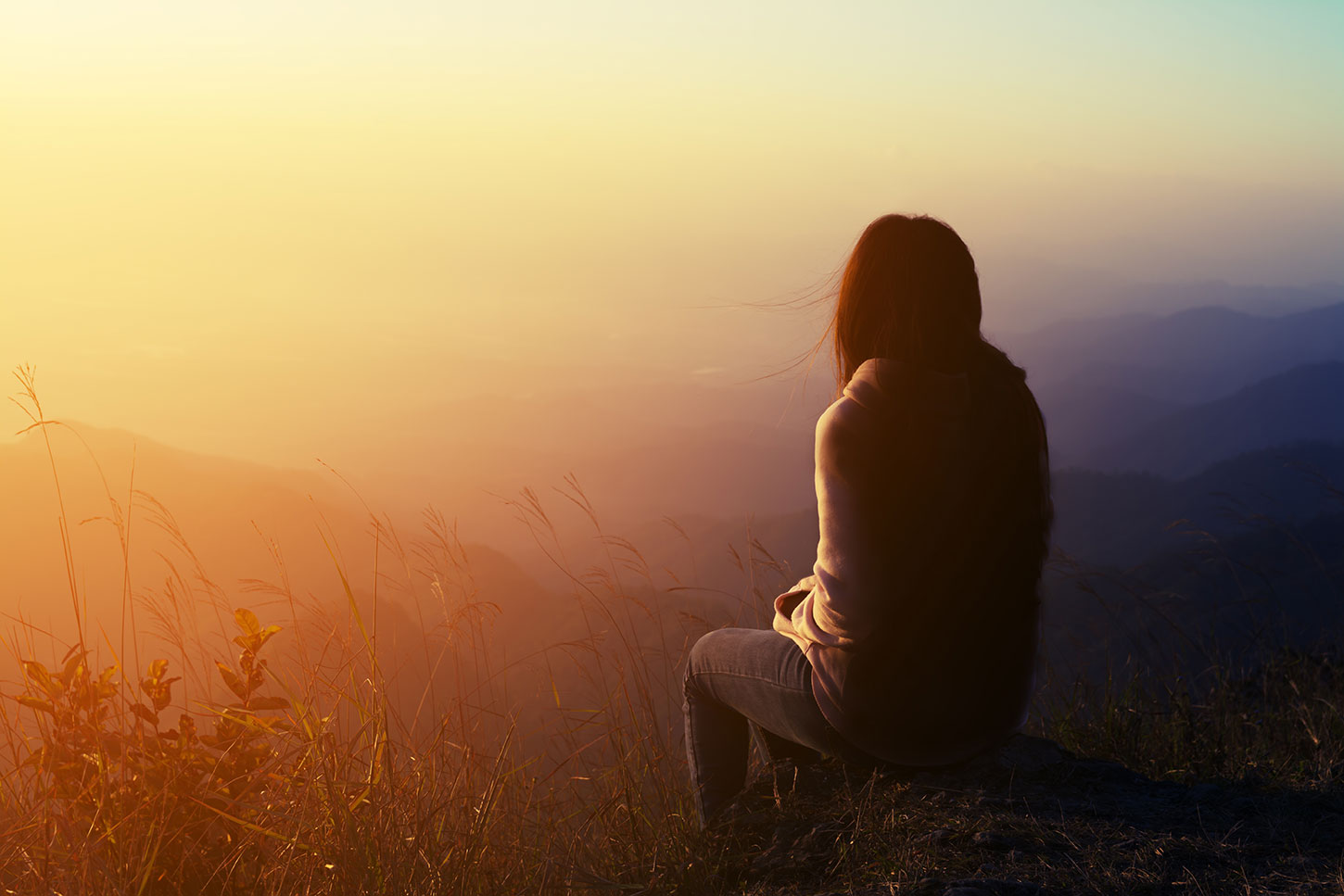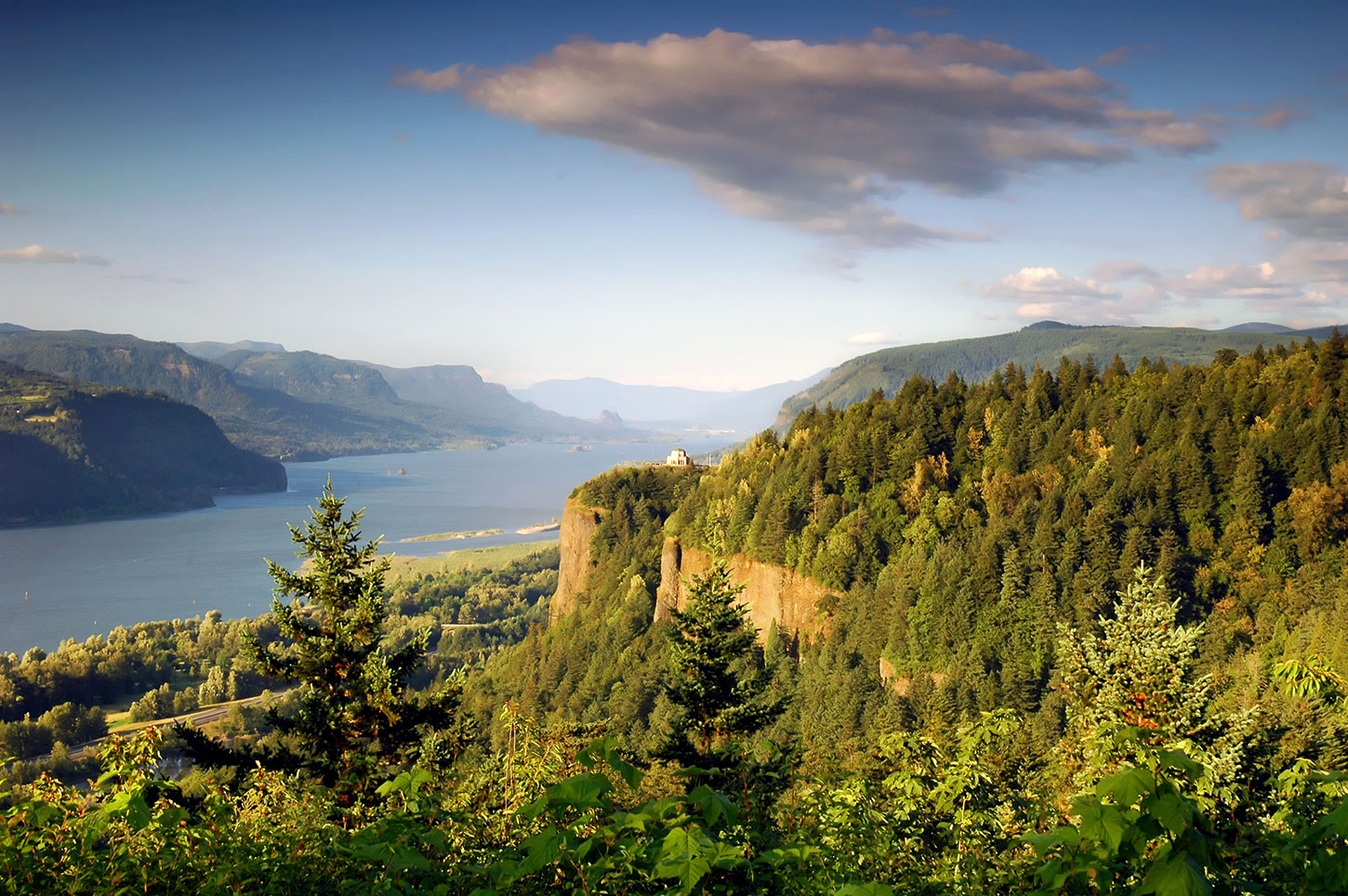Episode Transcript
Speaker 0 00:00:00 Welcome to soundscapes a terrain.org podcast. Today we explore love across time, love for each other, love for places, and love for the hard work of creating the world as it could be. Sandra Steingraber and Taylor Brewery prop these topics in a conversation about the secrets artists keep and the role of censorship focused on staying on message in influencing generations of queer and chronically ill Environmentalists stating back to Rachel Carson in the 1950s. Together, they consider questions about the significance of place and of sanctuary in the decades long struggle for a clean and just planet to call home, ponder the importance of inculcating, a sense of wonder through art, to humble humans into acting sustainably, and break down the illusion of separation of barriers between industry and nature as they envision our possible futures. Throughout this wide ranging conversation, Sandra Steingraber and Taylor Brewery build on Rachel Carson's legacy to bring light to human and environmental health and sickness in our rapidly changing world for the creation of true sanctuaries in the world as it could be. We hope you enjoy listening in.
Speaker 1 00:01:15 This is Taylor Broy Today, in late May, sitting on top of Hawk Mountain with my dear friend Sandra Steingraber, we're both queer environmental writers who have come to this beautiful mountaintop where Rachel Carson has visited or visited in the past. Sandra, I'm wondering if you could tell us a little bit more about Hawk Mountain, why we're here, uh, what this place is.
Speaker 2 00:01:45 Well, it feels like a pilgrimage to me, Taylor. Um, you know, this was a really important place, uh, for Rachel Carson, who was also a query ecologist and some of her foundational ideas that would later take shape and silence bring, um, were, were formed here first. And, uh, and so she, as a, a lover of birds, came here like so many other birders because the, these wind patterns, um, that come across, uh, this peak that we're standing on is a, a Flyway for Raptor migration. So we're here in, in May, um, but she came in the, uh, at the moment where there's kind of these northwest winds that really brought eagles and hawks and, um, across, um, right, right overhead. Um, and, and she was a queer woman who came here in the company of other women. Uh, there's an iconic photo of her that appears, uh, as art in one of my own essays. Uh, she has this kind of badass black leather jacket, her binocular, she's like looking off into the horizon. And, um, you know, we were kind of looking around for a place for our own picnic, and we <laugh>, we think we might have actually discovered the rock that she was actually sitting on when she came up here with, uh, her friend Shirley Briggs, who took that, uh, iconic photo. So it does feel, uh, like we're following in some amazing footsteps. Right. So what does this place mean to you?
Speaker 1 00:03:24 Well, being a prairie boy, this is so different than anything I'm used to seeing back home. We have this beautiful broccoli landscape of trees here. We're feeling a slight breeze and seeing Turkey vultures. For me personally, it's been such a great honor to be at a site where one of our major figureheads in environmental thinking sat, observed, contemplated. It's a, it's a origin place of the environmental imagination of the 20th century and how we think about not only time passing, but health and what we can see or what these currents remind us of in other ways about today. Uh, why I'm thinking about health, I guess, is because it's rather hazy here, which also gets me thinking about Rachel's work on d d t about pesticides in the environment. We're seeing a lot of Turkey vultures here, which through the documented recordings wouldn't have really been here during Rachel's time. That now that's the main raptor that we've seen here while we're having our lunch and looking out. And, and that's a haunting feature to me, I guess, to think about vultures circling around this, this site where a woman came and sat and thought about what are we doing here? What's our place in the wider landscape of environment and health?
Speaker 2 00:05:03 Right. So she, at this point, when, when she came here, she was still young and presumably not disabled, not yet, um, experiencing the cancer diagnosis that would later kill her, which came in the middle of writing Silent Spring and then here, or you and I, um, n not old either. And yet, you know, we both have these chronic health issues that is not, that are not unrelated to this smudge that we see on the landscape. So before we came, we checked the weather. Mm-hmm. <affirmative>, I bet Carson checked the weather too before she made the ascent. Right. And instead of news of, um, an oncoming storm, what we, what we saw instead was, you know, red alert for under weather, but instead of, um, news of a storm, it let us know that, um, the ozone in the particulate matter was especially unhealthful today, which has immediate relevance to your life and mind.
Speaker 2 00:06:02 And so, speaking for myself as a cancer survivor, um, the kinds of polycyclic, aromatic hydrocarbons, the kind of, um, smog which is causing the light waves coming through the atmosphere to actually bend. So what we're seeing is not the particulate matter. We're actually seeing bent light waves. That's what makes this look hazy. Right. But that's a sign of ground level ozone, which is a, a terrible cellular poison and causing cause of inflammation. Hmm. So if I have any a cancer cells flowing around in my body, it can, uh, in my lungs cause inflammation that would make my lungs less likely to fend off a metastasis. So we know that breast cancer patients are more likely to suffer lung metastases if they're breathing crummy air like we know we're breathing right now. And, and for you, um, well, you, you tell us, like as a, as a someone who has, whose whole life has been circumscribed by the limitations of diabetes, um, you, you're also warned away from places like this that have air quality like
Speaker 1 00:07:17 This, right? That's right. And it's why I'm so grateful to be here with you. I'd never contemplate doing this hike, which isn't very long, what we've done today, maybe a mile or maybe just slightly over a mile, but we are increasing elevation. The haze, the, the bent light also impacts not only my respiratory system, but how my blood vessels are functioning as a type one diabetic throughout our hike. I've stopped my, uh, insulin pump, which is always on my side delivering insulin into me. I've overridden it to stop insulin delivery since we're, I'm working at a higher rate than I have been at any point during the pandemic. I've packed extra food, I've packed extra medication in case I've had, get a low blood sugar, or God forbid, a seizure on this rocky path. So there's no moment on our hike up here to the north Outlook where I haven't been thinking about my body's health in terms of personally, but also seeing environmental, uh, impacts now looking out across the horizon to see, well, how might that be impacting the landscape of my body, just like it's impacting the valley below and the mountain ridges that we're looking out over right now.
Speaker 2 00:08:41 So this is like this intersection between the natural world and and disability, right. Which Carson did not write about. Right. And that was even at the end of her life when she was riddled with metastases and lost the use of her dominant writing hand and had to bring in teams of women into her home to, so she could dictate the last chapters of, of Silence Spring. That, but she, even though she wrote about inherently toxic chemicals, including what we're seeing here and, and their effect on health that, um, she doesn't do as a writer, she wasn't doing it in autobiographical way, the way you and I talk about our lived bodies and this living environment and the kind of communion right. Between the two. So that's one intersection.
Speaker 1 00:09:35 And I think that's how we've seen environmental writing change because of Rachel Carson of knowing the research of Linda Lear, your own writing of, of Illuminating that Rachel was actually dying of cancer and couldn't reveal that in her testimonies before Congress. And we have come so far from a sort of isolated way of writing or a a a boxed off way of thinking. We have to take on only one topic compared to you and I can write about health, about the natural world, about being queer. And we're seeing that braid together in beautiful days, uh, beautiful ways, excuse me, across the environmental writing landscape. I'm sort of sitting here as we're looking out and realizing how Rachel, for better or for worse, had to censor parts of herself to create her meg, her magnum opus.
Speaker 2 00:10:36 Yeah, for sure. I mean, she was keeping two big secrets, right? One, um, the, the story of her cancer diagnosis and her impending death, but then the, but then the other was who she loved. Right? Right. And I, and I think, I mean, we've been talking about why Carson isn't better known in queer circles, and I'm not exactly sure what the answer is, but there's an invisibility a around gay women lesbians mm-hmm. <affirmative> queer women that, um, I mean the word friends covers a lot of ground in a way that probably to Carson's great relief allowed her to move freely with her so-called women friends, especially when she was doing field work in, could go out for days into the, in here, I dunno, would No. Um, but, um, but also make, makes her invisible to us as queer writers who are looking for kind of progenitors.
Speaker 2 00:11:31 Right. And for, and for look, wanna feel ourselves part of a long chain of, um, writers who weren't heterosexual, who saw love in different places, but also could look with a queer eye on the natural world, which is not, which is as wild and weird as you can imagine, and more so. Right. And it's not a heterosexual place either. So she is a little bit, um, I think Carson is a little bit invisible as a queer writer in the, in the world of kind of environmental writers. But I have to say also as a, as a cancer survivor, she is not invisible in the world of feminist cancer survivorship circles. Mm-hmm. <affirmative> mm-hmm. <affirmative>. I was photographed in 1993 on the front page of the Boston Herald with a sign that said Rachel Carson was right. And I was marching in a, um, a march of women cancer survivors who were insisting that research dollars be directed down paths of inquiry about the relationship between, uh, environmental exposure to toxic chemicals and breast cancer in specific. And, uh, Carson was being resurrected not only because she explicate those connections as a scientist, but also because she was a breast cancer patient, and more specifically because she was queer. Yeah. And because that radical movement in the early nineties before it was, uh, appropriated and turned into something pink and silly and corporate, um, that newly radicalizing feminist cancer movement was led by lesbian women. Yeah. And so she was understood, uh, in that world, um, as a, as a queer woman.
Speaker 1 00:13:20 Well, and I don't think it was until becoming friends with you that I, I had always thought of Rachel Carson as first and for foremost an environmentalist and then thinking about health. I didn't know until our friendship about her being queer and thinking, is there an opportunity for Rachel Carson to come out of the closet? I mean, I think that's part of why we're at Hawk Mountain, to think about what is the significance of a place, not only for an observation of, of raptors and science, but what's the significance of, I mean, is Hawk Mountain a place for queer people?
Speaker 2 00:14:03 Right. Well, I mean, particularly formation and racial Carson's ideas. And I think, you know, as, as social critics in this moment in history, we are warned against looking backwards and using the language of today to describe someone in the past. And whether she would use the language we would use to talk about her romantic relationship with her women friends is not clear to me. But what is clear to me is that sh Carson needed sanctuary mm-hmm. <affirmative>. Right. And this place is officially called Hawk Mountain Sanctuary. Yeah. And sanctuary is a rarely resonant word in the queer community. Mm-hmm. <affirmative>. So I would love to know what that word means to you. I mean, also as somebody who's, somebody who's queer, somebody who's an environmental writer, but also someone, someone who went to divinity school, right? Yeah. That the word sanctuary is, is a kind of hushed, <laugh>
Speaker 1 00:14:57 Word. You're right. Sanctuary what?
Speaker 2 00:14:59 Right now where you and I are in a sanctuary, well surrounded by Trump signs that's on the drive here.
Speaker 1 00:15:04 Right. Which does not lead me to believe this is a sanctuary for me, other than where we're looking right now. Even though as we're looking out and there's a haze today, which doesn't allow me to feel fully that this is a safe place for me, a way for me to think about anything other than health. I get goosebumps thinking about that, about our, our journey up here, what our bodies have gone through our, our mental health, and going past Trump signs in this part of Pennsylvania. And I'm thinking of the volatile political climate we live in, in this country at this point of, I, I think I would say as a gay man, we often fall into the myth of it gets better. It's not that it doesn't get better in certain ways, it's also being, uh, in the trenches. There is no rest for these issues, you know, of continuing to advocate for clean air, for clean water, you know, I mean, not so far from here, about an hour away is three Mile Island.
Speaker 1 00:16:12 I mean, we're sitting here and thinking, yeah, what does sanctuary mean? It, it's root meaning comes from the sanctus, the word holy and <laugh>. That that's something I think about right now about, um, how we're holy connected to other species. How we're seeing change before our eyes, these Turkey vultures that wouldn't be so prominent. We haven't seen any other raptors today other than Turkey vultures on our hike. That's such a haunting image. And yet, Turkey vultures serve an incredible purpose. But down to our left is a, is a rail track. I don't know if that hauls coal or if it hauls oil. And I keep thinking about, you know, these places where we feel safe and we feel connected, and yet I feel connected here deeply to Rachel Carson, to you, to the landscape we're looking at. And yet I don't feel safe. It's a place I want to come back to. It's a place that reminds me about how risky our existence is as queer, uh, chronically ill people who write about controversial issues to some people and advocate for social justice. I'm wondering too, right now in our conversation, I'm noticing you have a little field note from Rachel Carson from her time when she was visiting here at Hawk Mountain in October of 1945. And, and would you mind reading from that, Sandra?
Speaker 2 00:17:54 Yeah. I'm, it's always nice to have Rachel's words with me, so, all right. So in October, 1945 when she was up here, she took some notes, well, sitting here on the rocks. Um, and she said, among the things this, she was commenting on this, the ancient Appalachian mountains of which Hawk Mountain is, you know, part, part of that range, and thinking about how they were formed and, um, which was from, you know, the up, up, um, kind of upwellings of an ancient o o ocean floor. So she noticed that the cliffs, um, that were above were formed of sandstone so long, long ago that that was actually sand, um, on the bottom of the sea. And, um, on, on, and she says, um, let's see, where'd she say here, uh, shallow marine waters where strange and unfamiliar fishes swam. Then the seas receded. The mountains were uplifted, and now the wind and rain are crumbling the cliff away to the sandy particles that first composed it.
Speaker 2 00:19:05 So she's, she's doing a sort of the eternal circle, right? Of mm-hmm. <affirmative>, you know, first there were sand <laugh>, right? And then there was sandstone, right? And then, and then there are cliffs exposed to air, but that now the sand grains are eroding away into the air and becoming sand again, you know, and, um, so ashes to ashe's, dust to dust kind of thing. So then she goes on, let's see, and talks about, um, these whitened limestone rocks on which I am sitting now I'm quoting Carson again. I was just talking about it herself. These white, these whitened limestone rocks on which I am sitting, these two were formed under that paleozoic ocean of the myriad tiny skeletons of creatures that drifted in its water. So I wrote about her writing those words in an essay I published a few years ago, because it struck me how, um, the sign of her kind of brilliant mind that she would come to the top of a mountain and see herself on the bottom of the ocean.
Speaker 2 00:20:08 Right? Right. So she's sitting on, literally sitting on the skeletons of creatures that lived in the sea. And so she began to imagine that this is the bottom of the ocean. And above her, these, these currents of air are like currents of water. And, and the raptors coming toward her were almost like sea creatures. But, so there's this very elemental quality of, of her writing, but reading it now, realizing she wrote those words in October, 1945, I mean, you can see her mind at work and you, I mean, a couple things strike me. One is that this is her developing this voice that she used in her sea, her three trilogy of her cics, of which she had already written one at this point. And, and her theory of social change is that if she can inculcate in her reader a sense of wonder that what, what is now the peak of a mountain was once the bottom of an ocean.
Speaker 2 00:21:05 Right? Right. Which is once a cliff, which once a sand right. <laugh>, and that, that, that we would feel so humbled, um, like looking up at, you know, the, the Milky Way galaxy. We would feel small and humble, and our hubris and our lust for destruction would fade away as we realized our temporal small place. And this, you know, the mystery, the whole mystery of life with its long arc of being. Um, but you know, we all write out of particular political moments. So I can't also help. Now, and this is kind of a new thought for me to realize. She was writing in October, 1945. The war had just ended, right. The war in Europe had ended the previous spring, but the war in, in Japan, which ended with the dropping of two atomic bomb hap that happened in August, and then a September Japan surrendered.
Speaker 2 00:22:00 So it had only been a few weeks Right. Since it happened. And so the horror of, and the terrible power of nuclear weaponry, which Carson would go on to write about in, in very explicit ways mm-hmm. <affirmative>, um, was just beginning to be understood by people. And at the same time, this was October, 1945, is the month that the United Nations was formed. And we were just, and, and just also a few weeks before she made this trip up here, um, all the concentration camps had been liberated mm-hmm. <affirmative>. And we were just beginning to realize the horror Mm. Of the holocaust and the extermination of so many millions. And so the kind of lust for power that she felt like she is a writer had the ability, she could only find language as beautiful as nature to kind of deconstruct and make people feel like a, a part of bigger creation.
Speaker 2 00:22:58 She was writing these things at a moment when we, we had just achieved the most hubris of all. Right? Right. I mean, over in Europe, the, this horrible social engineering program that was supposed to, you know, re ree evolve the human race into a master race on the one hand, and then over here on the other side of the ocean we're dropping the atomic bomb. Right. And, and, and so the sort of horrible responsibility of coming to terms of that, we were just waking up to it. And so it was that political moment that Carson's writing in these lyrical ways about the importance of realizing that, that this mountaintop is actually the bottom of the sea.
Speaker 1 00:23:41 And we're talking about something nearly 80 years ago here. I mean, her insights about, you know, people being liberated, were also, I'm just thinking about this now too. This is near contemporaneous of when, correct me if I'm wrong, Sandra, when hydraulic fracking is invented in the forties, is it not? Am I misremember? I might be misremembering that.
Speaker 2 00:24:07 Um, I don't think you are. I think it, it went, didn't go on to become a commercially viable thing until, until later, but yes. Right. So, so underneath these mountains that were of, you know, of which Hawk Mountain is only one part of the Appalachians, there's, um, a another ocean floor. Right. Um, and, and this is, you know, one that I'm interested inri writing about at this moment in history, this kind of la landscape that we cannot see, which represents, uh, another, um, paleozoic ocean to use Carson's word for it. Um, that was the Marcella Shale, right? Which is the bottom of an, an even more ancient ocean. And, um, and the, the creatures that fell to the bottom of that ocean didn't form sandstone. They formed shale and their bodies, um, li liquified into oil and gas, which is the quarry for the oil and gas industry, which needs to go away. <laugh>
Speaker 2 00:25:16 Life itself is to go on, and you and I have devoted our lives as writers and, um, to, um, raising questions about that and bearing witness to the destruction that we've, that we've seen. I mean, those are things that Carson couldn't have entirely foreseen. Like I, I see her here, like looking out with her binoculars, like looking toward the future, right? Yeah. Yeah. And, and for her future, this was, was really a sanctuary, right? In that sense that, uh, in that old fashioned 20th century conservation sense of a sanctuary, like a place apart mm-hmm. <affirmative> a sacred place that could be separated from the industrial world out there that had its own ecology. And, and now you and I are here in another century, and we understand that there is no separation, right? Right. That it, when as we begin to see the climate system become more in coate and more unstable, that, uh, and we know that fossil fuels are the cause of it, and we're looking out and we're seeing haze, right?
Speaker 2 00:26:25 Um, we, and, and that we know that the bent light waves are harming our health, but we also know the CO2 and the methane out there is, is causing, um, de destabilization of the whole life support system even here inside the sanctuary. Right. And it's queer people who, like I got here three days before you arrived, I looked around and chose not to make this pilgrimage alone, right? Because I saw the Trump signs, and I thought as a queer woman in Appalachia, um, where cell service isn't so great, I'm not safe. Right. You know, coming here, I need my friend Taylor <laugh>,
Speaker 1 00:27:06 The muscle safety and numbers
Speaker 2 00:27:08 <laugh>. Um, so I too feel the sense of like, okay, we can call it a sanctuary. Maybe Carson filled as a sanctuary, but I don't necessarily feel that way now. Right? I mean, but for Carson it became something else too, right? Like however inspired she felt about it, she was also just very scientific, right. And would go on to write about this very spot appears in, is referenced in Silent Spring, um, the North lookout point where we're sitting here having our picnic, um, she, uh, came back over and over again and, um, was able to document that fewer and fewer eagles after World War II were migrating past and was able to document, um, that exposure to D D T was the cause that, you know, that the eggshells were becoming thinner. They weren't, the reproductive su success was going down. And she put all that together. Yeah. They began with these observations here. So even for her, in, in the end, there was no way that even Hop Mountain was in a sanctuary for the Eagles. And she ended up explicating all that, um, in, in silent Spring. So, so I'm wondering now we're standing here looking out the same landscape, like she kind of looked into the feature. So what do you see? What do you see coming when you look out here?
Speaker 1 00:28:23 When I, when I look out here, it's looking pretty blurry for the horizon that we're seeing today from our vantage point. But I'm, I'm thinking about even where I come from in South central, North Dakota, we're seeing the end of coal. Whether coal miners want to admit this or not, it is coming. It is what the free market has dictated regardless of politics and who gets blamed. That is a painful thing for me in a number of ways that my, so many of my family members work in the fossil fuel industry. I want the fossil fuel industry to go away. And I'm thinking about the concept of liberation that you were talking about what had just happened in 1945 when Rachel Carson is here, and how we really need a liberation from the real empire at work right now, the fossil fuel industry, because there is no conversation where I come from about what will the 2000 coal miners in these three counties in South central, North Dakota, what will they do?
Speaker 1 00:29:34 Will they stay there? There is no economy, no care of the home without extraction. I see that coming to an end, the, the, the coal industry sooner than maybe natural gas because we've fallen into the label of it as a bridge fuel. We know we need to avoid burning carbon at all costs. We need to stop it and stop it. Now, I'm thinking the future looks a lot more like what you and I are doing here. We are two gay people who have suffered from horrific medical complications, bringing that to light. Rachel Carson didn't do that, but she laid a beautiful groundwork for you and me to be here today to think about health, to think about queerness, to think about destruction as you've told me. You know, we're doing to the biosphere. What we're also mirroring 6,000 feet below us, we are blowing up both of these precious landscapes that we need to protect, that we need to ensure are healthy, that we need to create space for people who look different from us to thrive on this planet, along with as many species as possible that we so desperately depend upon. So I'm sitting here looking at the far horizon, thinking about what fables for tomorrow do we need that have yet to be written, that help us imagine the world as it could be, rather than the world as it is. And I hope that this will become a sanctuary for queer people, for disabled people. I think in our own quiet way today with our conversation, we're trying to follow Rachel's example and create space for others to follow.
Speaker 0 00:31:34 Thank you to Sandra and Taylor for allowing us to be a part of their dialogue. Next two terrain.org published poets pick up the threads of Sandra and Taylor's conversation. First Pepper Trail, whose biography reveals that he finds reason for hope in the beauty that remains, shares his experience of chronic illness In the poem, red flag warning,
Speaker 3 00:31:57 Red flag warning. In the fifth hour of migraine, I imagine that the hard south wind shouldering the pine tree against the house is a river. And that I in my bed, in the darkened room on my back and motionless to keep the pain from waking am in a narrow boat, a canoe or drift boat, or that I am Ishmael in que quake's coffin carried away from the wreck hanging on in the sea waves churned by the great whales fury. But I know the hot wind stirs not water, but fire. And that this autumn, the world is burning, is divided merely into the burned and the yet to be burned. And I smell the scent of smoke, but that is the migraine and the ringing phone again and again ignites my head In showers that sparks the metallic voices sounding the warnings of this inflamed political season. The fire outside my door.
Speaker 0 00:33:06 And now here's Katherine Whittcomb with her own message of wonder in along the narrow road, some sunlight
Speaker 4 00:33:12 Along the narrow road, some sunlight. When the flower shop door jangles, the women behind the counter glance up together, six of them all working in sync and laughing, emits the waiting piles of roses and gerra daisies. Their shop feels like somebody's kitchen after the screen door has banged and they say, oh, it's you, friend, come in. Leave the biting wind outside. Sometimes to write the right words to give the with flowers is difficult. The mourners rip up, scratched out cards, and start their messages over again. They try so hard to get it right. Remember Monet in Paris after the war, bringing his water lilies to the French in lorrie's, big oval rooms, floor to ceiling. Nims surround the public in an inquiry of flowers and water outside the museum. Walls like gray gravel paths and ESP spier fruit trees, granite blue sin slipping under the bridges inside Parisians weary from the ghastly war.
Speaker 4 00:34:40 So many sons and fathers dead in the trenches and the fields walked into cerise and lemon colored lily blossoms no borders. Water light to enter the gallery, one is instructed to stand in a portal room, then step forward with peace. Today in Loie, tourists with selfie sticks cruised the rooms, everyone ta taking their own little movies. But in the crowd, a man who has traveled many thousand miles just to be there might start crying loudly with the paintings around him. And instead of shushing him, the other patrons pull out their handkerchiefs and blot their eyes in agreement and weep, bewildered together among shimmering blooms, cut loose in time back in the flower shop, a song from long ago plays over the sound system, and all the flower women sing along raising their heads to us in greeting.
Speaker 0 00:35:59 Thanks for listening and for being a part of our community. We'd love to hear from you and hope you join us for another episode of Soundscapes. Until then, here's to the hard work of building true sanctuary.






